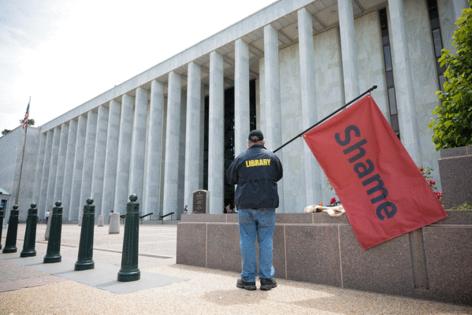Heidi Stevens: On long list of things being cut, art may seem inconsequential. It's not
Published in Lifestyles
In the past few months I’ve traveled to an extravagant, loveless wedding on the coast of Rhode Island, a midsize prep school outside Boston, a long, awful, gorgeous goodbye between two soulmates inside Graceful Shepherd Hospice, a retirement community in Maine, a beach-town rental on Cape Cod and a whole bunch of spots in Los Angeles, both gritty and glamorous.
Not in person, obviously. All of my actual travel revolves, happily, gratefully, around my son’s lacrosse team and my daughter’s college schedule.
My mind, on the other hand, travels (also happily, gratefully) in books. “The Wedding People” by Alison Espach; “Prep” by Curtis Sittenfeld (an oldie I was late to); “We All Want Impossible Things” by Catherine Newman (one of the best books I’ve ever read); “Tell Me Everything” by Elizabeth Strout; “Sandwich” also by Catherine Newman; and “The Seven Husbands of Evelyn Hugo” by Taylor Jenkins Reid, most recently.
Stories are magic. They introduce me to new people and let me live in their heads and learn from their heartbreak and humor and terrible decisions and wisdom and fears and triumphs. Stories make my world bigger. They complicate easy narratives. They shrink my blind spots. They remind me to hope.
“The Sum of Us” by Heather McGhee taught me more about the United States than a lifetime of history classes. “Mercy Street” by Jennifer Haigh gave me an entirely new lens through which to view reproductive rights. I think about “A Heartbreaking Work of Staggering Genius” by Dave Eggers at least once a week.
Books do that.
Art does that. And it is, like so many things that sustain us, under attack right now.
Hundreds of arts groups across the country received notice that their National Endowment for the Arts grants were being withdrawn or terminated in May, the same day President Donald Trump called for eliminating the NEA altogether, as well as the National Endowment for the Humanities and the Institute of Library and Museum Services.
It would be tempting to write this off as a minor outrage in the grand scheme of outrages unfolding right now. The budget bill that, as of this writing, just passed through the U.S. Senate slashes Medicaid, Affordable Care Act and rural hospital funding, earmarks $45 billion for migrant detention facility beds, rolls back clean energy projects and adds at least $3.3 trillion to the national debt over the next decade. Among other things.
But if the first six months of this administration have taught us anything, it’s that we can be appalled by more than one thing simultaneously. And a society that doesn’t cultivate and support and sustain art is an appalling thought.
Art matters. It connects us. It softens us. It moves us.
“Everyone — no matter their belief system or politics — deserves art,” Anne Helen Peterson wrote in her July 2 newsletter. “You deserve art you love and you deserve art that pisses you off and you deserve art that makes you think.
“We also deserve art,” she continued, “that’s not subject to the whims of capitalism or individual taste; if we only fund art that’s pleasing or inoffensive, we end up with a bleak art world composed of Justin Timberlake’s ‘Can’t Stop the Feeling’ from the 'Trolls' soundtrack on repeat forever.”
Which would not only be deeply unpleasant, it would stunt our growth.
Rebecca Makkai, author of the phenomenal, Pulitzer Prize finalist “The Great Believers,” wrote a stirring defense of the arts on the same day as the $40 million, taxpayer funded military parade in Washington, D.C. It was headlined, “Your Kid's Art Class is Paying for This Parade.”
“It’s not as if there’s a trail of crumbs straight from the NEA cuts to this parade,” Makkai wrote. “But when your priority is to defund the things that give people a voice and to fund the things that scare people into silence, it’s hard not to see them as two sides of one coin.”
Precisely.
Makkai, as it happens, is one of the authors whose name appeared on an AI-generated summer reading list published in a handful of major newspapers recently. The list, which had no byline, recommended 15 new titles, only five of which actually exist. My book- and newspaper-loving heart shattered a little bit that day.
There’s an awful lot working against our humanity right now. But there are so many reasons to defend it. There are so many reasons not to give in — to cruelty, to fear, to lazy thinking, to shortcuts that take us to dark places.
Art narrates those reasons. Art illuminates those reasons. Art creates empathy. And it’s hard to think of a more precious, endangered resource than empathy right now.
©2025 Tribune News Service. Distributed by Tribune Content Agency, LLC.
























Comments